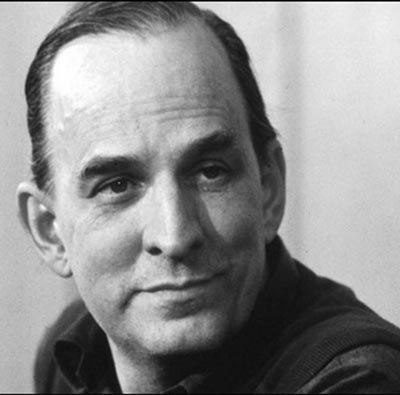
Swedish movie and theatre director, playwright, screenwriter. Although Bergman is widely known as a film director, he has also become one of the foreground figures of the modern Swedish theatre. Bergman’s artistic career includes about a hundred stage performances, forty radio productions, fifty feature films, and fifteen TV productions. In several books, from The Magic Lantern (1987) to Private Conversations (1996) Bergman has explored his childhood, his relationship to his father, and the strained marriage of his parents.
Ingmar Bergman was born in Uppsala. His father, Erik Bergman, was a Lutheran minister and chaplain to the court of Sweden. Bergman was raised under strict discipline. His mother Karin came from a prosperous family; she was a proud, strong-willed person, and the relationship between his parents became mutually destructive. From his childhood pressures Bergman later drew material for his plays and films. Many of Bergman’s works have explored the father-god trauma, among them the films Through a Glass Darkly (1961) and Winter Light (1963).
At the age of 10 Bergman received as a toy a laterna magica. He made dolls for his puppet theater and saw in 1935 his first theater production, A Dream Play by August Strindberg. Bergman studied literature and art at the University of Stockholm. After graduation he became a trainee-director at a Stockholm theater. During this period he published a few short stories and wrote a number of plays including Kaspers dod (1942) and Jack among the Actors (1946). At the age of twenty-six Bergman became the youngest theatre manager in Europe at the Halsingborg City Theatre in Sweden. He secured his position through a large number of impressive works on stage, especially classical plays. Bergman was manager of the Helsingborg city theatre (1944-46), director at Gothenburg city theatre (1946-49), at Malmo city theatre (1953-60) and at the Dramaten in Stockholm (1960-66), the last three years as manager.
Bergman made his debut in film in 1944 as a screenwriter. In 1949 he directed the film The Devil’s Wanton. The artistic breakthrough came with the film Sawdust and Tinsel. In this film Bergman describes an artist’s life as despised and wasted. The background is a third class circus environment.
His first international success was Smiles of the Summer Night. In the story a country lawyer meets again a touring actress who was once his mistress.Wild Strawberries (1957) is considered a landmark film in Bergman’s career. It dealt with the subject of man’s isolation, and like in several films, Bergman used a journey as a plot structure. The Seventh Seal (1957) won prizes at the Cannes Film Festival. It explored the individual’s relationship with God and the idea of Death. In 1971 Bergman married Ingrid von Rosen; they had already had an affair in the late 1950s. Bergman had four previous marriages: with Else Fisher, Ellen Lundstrom, Gun Grut, and Kabi Laretei. Ingrid von Rosen died of cancer in 1995.
Recurrent themes in Bergman’s films are men’s and women’s inability to communicate with each other, metaphysical questions of guilt and the existence of God, and the emotional cruelty of human beings. Among Bergman’s most probing and honest studies of middle-class married couples from the 1970s is Scenes from a Marriage (1974). Originally it was made as six TV episodes, but Bergman later edited it into feature-length.
Despite Bergman’s international status, his films were not always positively received by critics in Sweden. In 1962 the director Bo Widerberg published a pamphlet attacking him for reinforcing national stereotypes and calling for a new and more socially conscious national cinema. On the other hand, Summer with Monika (1953) was attacked in the United States. Its prints were confiscated in Los Angeles, and a judge declared that the film appealed to potential sex murderers. Smiles of the Summer Night was promoted as “a Swedish smorgasbord of sex, sin and psychiatry.
In 1976 Bergman was arrested by two policeman and charged with income-tax fraud. He suffered a nervous breakdown, closed his studio on the Baltic island of Faro, and left Sweden in protest. The charges were later dropped. Bergman made his home in Munich, where he was a director. He also made films, such as The Serpent’s Egg (1977), which dealt with the collapse of the German currency and other events of the 1920s that paved the way for the Nazis.
Bergman once noted that the cinema was like an exciting mistress to him, but the theatre was his faithful wife. As a film director his greatest international success was the autobiographical Fanny and Alexander (1983), which received the Oscar for best foreign film. Reviews were in general positive.
After returning to Sweden, Bergman wrote film scripts for Billie August and Daniel Bergman and directed at the Royal Swedish Theatre. The Swedish Film Institute launched a new Ingmar Bergman prize to be awarded annually. In 1988 appeared Bergman’s autobiography, The Magic Lantern. It was followed by his film memoir Images: My Life in Film (1993). Bergman’s novel The Best Intentions (1993) was based on his parents’ lives, and the screenplay for the 1992 film on the same subject. Private Conversations (1996) dealt with extra-marital affair.
In October 2001 Bergman announced his plans to make a sequel to Scenes from a Marriage with the 78-year old Erland Josephson and the 62-year old Liv Ullmann who also were members of the original cast in 1973. He wrote the screenplay for Liv Ullmann’s film Faithless (2000) and two years later Bergman had a new television film under way—Saraband (2003), saying it would be his last picture.
Bergman passed away on July 30, 2007.
